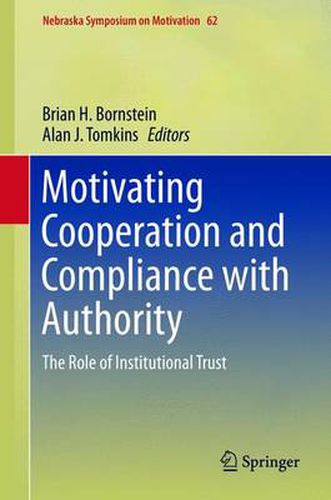Readings Newsletter
Become a Readings Member to make your shopping experience even easier.
Sign in or sign up for free!
You’re not far away from qualifying for FREE standard shipping within Australia
You’ve qualified for FREE standard shipping within Australia
The cart is loading…






This title is printed to order. This book may have been self-published. If so, we cannot guarantee the quality of the content. In the main most books will have gone through the editing process however some may not. We therefore suggest that you be aware of this before ordering this book. If in doubt check either the author or publisher’s details as we are unable to accept any returns unless they are faulty. Please contact us if you have any questions.
This volume explores the various ways in which trust is thought about and studied in contemporary society. In doing so, it aims to advance both theoretical and methodological perspectives on trust. Trust is an important topic in this series because it raises issues of both motivation and emotion. Specifically, notions of trust and fairness motivate individuals to behave in a manner they deem appropriate when responding to governmental authority. On the emotions-related side, individuals have emotional responses to institutions with authority over their lives, such as the city government or the Supreme Court, depending on whether they perceive the institutions as legitimate. The public’s trust and confidence in governmental institutions are frequently claimed as essential to the functioning of democracy), spawning considerable research and commentary. For those in the law and social sciences, the tendency is to focus on the criminal justice system in general and the courts in particular. However, other public institutions also need trust and confidence in order not only to promote democracy but also to assure effective governance, facilitate societal interactions, and optimize organizational productivity. Not surprisingly, therefore, important research and commentary is found in literatures that focus on issues ranging from social sciences to natural resources, from legislatures to executive branch agencies, from brick and mortar businesses to online commerce, from health and medicine to schools, from international development to terrorism, etc. This volume integrates these various approaches to trust from these disciplines, with the goal of fostering a truly interdisciplinary dialogue. By virtue of this interdisciplinary focus, the volume should have broad appeal for researchers and instructors in a variety of disciplines: psychology, sociology, political science, criminal justice, social justice practitioners, economics and other areas.
$9.00 standard shipping within Australia
FREE standard shipping within Australia for orders over $100.00
Express & International shipping calculated at checkout
This title is printed to order. This book may have been self-published. If so, we cannot guarantee the quality of the content. In the main most books will have gone through the editing process however some may not. We therefore suggest that you be aware of this before ordering this book. If in doubt check either the author or publisher’s details as we are unable to accept any returns unless they are faulty. Please contact us if you have any questions.
This volume explores the various ways in which trust is thought about and studied in contemporary society. In doing so, it aims to advance both theoretical and methodological perspectives on trust. Trust is an important topic in this series because it raises issues of both motivation and emotion. Specifically, notions of trust and fairness motivate individuals to behave in a manner they deem appropriate when responding to governmental authority. On the emotions-related side, individuals have emotional responses to institutions with authority over their lives, such as the city government or the Supreme Court, depending on whether they perceive the institutions as legitimate. The public’s trust and confidence in governmental institutions are frequently claimed as essential to the functioning of democracy), spawning considerable research and commentary. For those in the law and social sciences, the tendency is to focus on the criminal justice system in general and the courts in particular. However, other public institutions also need trust and confidence in order not only to promote democracy but also to assure effective governance, facilitate societal interactions, and optimize organizational productivity. Not surprisingly, therefore, important research and commentary is found in literatures that focus on issues ranging from social sciences to natural resources, from legislatures to executive branch agencies, from brick and mortar businesses to online commerce, from health and medicine to schools, from international development to terrorism, etc. This volume integrates these various approaches to trust from these disciplines, with the goal of fostering a truly interdisciplinary dialogue. By virtue of this interdisciplinary focus, the volume should have broad appeal for researchers and instructors in a variety of disciplines: psychology, sociology, political science, criminal justice, social justice practitioners, economics and other areas.